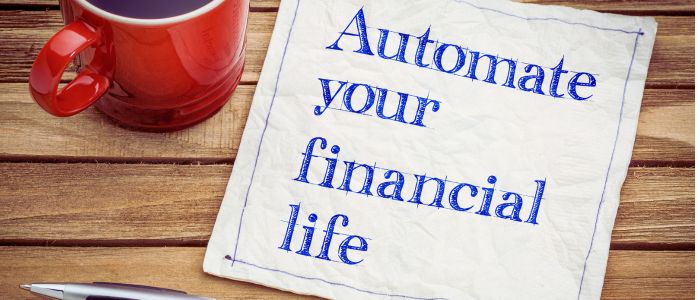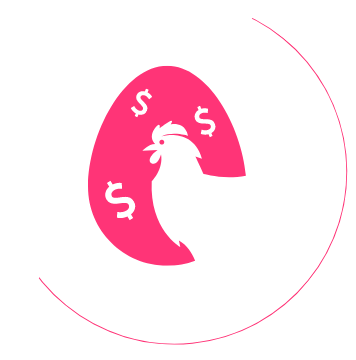Ever have a moment when the world crashes around you, and you have no emergency fund to fall back on?
The bills are due. Now. There’s no money in the bank or your wallet. What’s more? Payday isn’t until next week. Maybe you even received a disconnect notice — another piece of sunshine for that moldy slice of pie sitting on your plate.
Having a mountain of debt and financial obligations while you have no cash to deal with them is not a fun time for anyone. In fact, it’s downright stressful because now you must figure out how to get an extension to take you through to payday. Or you have to beg, plead, and borrow from:
- Friends
- Family
- That sleazy payday loan place up the road
Life can get unpredictable now and then. However, no one wants to experience the stress of getting caught in the chaos with too many bills, a sudden financial emergency, and no emergency fund as your backup.
Now for the boring stuff: This article contains one or more affiliate links. As an Amazon Associate, I earn from qualifying purchases made through these links, but at no additional cost to you.
Get Rainy Day Ready, But Start Small
Our savings often go down the drain in favor of the many wants in life: a new car, the latest technology, that cute, Michael Kors bag, or those vibrant new chicken boots.
Maybe the chicken theme is just for me, but you understand.
Life’s little—and sometimes big—shiny objects can interfere with what we know we should do — like saving for emergencies before they actually happen. That’s what a rainy-day fund is for; it counteracts those miserable moments when life veers off track, giving you an ‘out.’
You can start growing your emergency fund a few buckaroos at a time if you must. Seriously! Of course, the more cash you can stash, the faster your fund will grow. But if you’re living on a minimum, the first goal is to begin with what you can do now. Then, keep moving forward one step at a time.
So, set aside a small but consistent portion of your income from every paycheck to begin your savings habit. Hint: It takes close to three months to form a lasting habit, so be on your guard during the first 90 days while you work your budget and pay yourself first.
The concept of paying yourself is far from new. In fact, it’s a must often touted by financial gurus and planners, as well as top money experts. But that doesn’t mean putting it into practice comes naturally.
Yes, you have bills to cover, food to buy, gas to fill your vehicle with, and much more. But you’ll constantly struggle to get ahead if you fail to pay yourself first — even if it’s only a few bucks per check.

Set Your Emergency Fund Savings on Autopilot
One fast and easy way to achieve financial success and independence is by automating your savings with each paycheck. Most of us get paid via direct deposit today.
Your savings are immediate when your paycheck is auto-deposited into your bank account. Think of it as an ‘out of sight, out of mind’ practice.
If you’re anything like me, you use your checking account to live, to pay bills, etc. So, let your savings account attract those ginormous financial dust rhinos. Your money grows when you ‘set it and forget it.’
Automatic savings allow you to divert a portion of each paycheck to your savings. Then, it sends the remainder to your checking account.
I personally practice this method with the 80-20 rule. 80% of my checks go to my checking account to pay bills and living expenses while addressing family needs. The remaining 20% is automatically deposited into my savings account.
Expense Detox: How to Slash Unnecessary Costs
Expenses add up. I know someone who recently visited a specific chain restaurant. They spent over $13 for one meal — a small sandwich, a bag of chips, and a soda. We live in a very rural area, so this is pricey but on target with the rising cost of living.
Now, imagine what else you could do with thirteen bucks? That amount could buy me one of the following:
- Two gallons of milk
- A small bag of pre-sliced deli meat and cheese, and a loaf of value bread
- Thirteen bucks in my savings account
I like the last option best. It’s $13. Saving thirteen bucks on payday isn’t going to break me. It might be before payday, but not on it. So, if I sink that cash into my account when I have the money to spend, I really don’t notice it.
Here are a few things you might consider cutting back on:
- Impulse shopping
- Unused subscriptions
- Takeout or dine out
- Excessive entertainment
- Premium services
- Unused or underused memberships
- Name-brand products, when a store brand will suffice
Are you giving up something to do it? Yup. But you’re also gaining so much more.
Putting money in the bank instead of in your wallet earns interest and doesn’t gnaw away at you when temptation takes hold. Your money is making money for you.
Slashing spending on the little things might not seem like much initially, but it adds up over time. Look for little and big ways to save money on beauty products and other things you love. Create a reasonable budget that fits your life, and stick to it. Budgeting need not be complicated. Keep it simple. Pen and paper work great, but so do budget planners or digital budget apps. So, look around and try a few. Find what works best for you.
If the money is in your wallet, the only thing it’s doing is feeding those temptations. I know it tempts me.

Turn Your Passions into Extra Savings with a Side Hustle
Ever walk out near a chicken coop and hear a couple of frustrated hens? They can even make a real racket or a cacophony. Worse yet, frustrated hens become barnyard bullies and aggressively peck at each other. Feathers fly. Hens race around. The noise grows louder.
If the frustration fails to resolve, it can even affect their egg-laying habits. No more golden nuggets of joy until the problem is resolved.
So, how does this translate to finances?
When you lack enough moo-lah coming in to make the math work for your bills and emergency savings, your own frustration builds. And you’re not alone.
With the higher living costs today, more of your hard-earned money goes toward the bills, which can rightfully leave you frustrated. But there are a few things you can do about the issue, namely, put a positive spin on the math problem by increasing your overall income.
I’m not suggesting you ask your manager for a raise, but if you think that’ll work, go for it! I’m suggesting finding a suitable side hustle.
6 Side Hustle Ideas to Boost Your Emergency Fund
There are gobs of ways to earn extra cash; it’s a matter of finding one that meshes with your personality, skills, experience, interests, and available time. Here are a few solid ideas:
- Add a part-time second job.
- Pick up freelance work.
- Sell unwanted, unneeded things you own.
- Monetize hobbies.
- Drive for a rideshare service.
- Start an e-commerce business.
You might be surprised by how much a side hustle can deliver. Some people start side hustles that later transform into full-time careers and replace the income from their former full-time jobs. But that level of hustling takes time, consistency, dedication, and patience.
Even if you only want to do your side hustle for the short term, it has the potential to transform your finances by delivering a powerful boost to your savings. Essentially, side gigs offer a temporary — or permanent — solution to your math dilemma.
Build Your Emergency Fund —You Got This!
Having foresight and preparation for the future reminds us of the importance of having an emergency fund. It’s not just for the next bling but for our future and life’s little and sometimes big moments of uncertainty.
Immediate gratification for the bling of your desires can easily tempt you away from building your financial safety net. Don’t let it.
By taking small steps today, you can gradually build an emergency fund without straining your budget.
Remember, each dollar you save boosts your financial safety net. Likewise, each savvy money decision makes you more resilient for whatever tomorrow might bring. It sets you apart and allows you to become a true money maven.
Yes, building an emergency fund is a formidable task. Still, you’re more capable than you realize or credit yourself for. And the money tips mentioned above will help you rein in your spending and saving habits and take charge like the independent boss chick you are.
Stay focused, stay fabulous, and keep saving! Remember, you’re a financial powerhouse in the making. So, embrace your journey, celebrate those milestones, and never underestimate the power of a well-planned emergency fund strategy.
You’re not just preparing for the unexpected, you’re setting yourself up for a future full of possibilities. Now, go get ’em, superstar!
Image Credit: © andresr (via Canva.com) | © marekuliasz (via Canva.com) | © shannonmacleod from Pixabay (via Canva.com)





